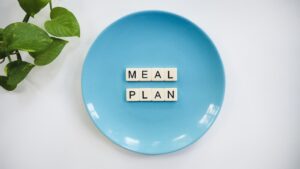
Balancing your diet involves consuming a variety of foods that provide all the necessary nutrients your body needs to function optimally. Here are some tips on how to balance your diet:
- Eat a variety of food groups: Include a mix of fruits, vegetables, whole grains, lean proteins, and healthy fats in your diet. Each food group provides essential nutrients that are needed for good health.
- Choose whole foods: Opt for whole foods instead of processed or packaged foods as much as possible. Whole foods are minimally processed and contain more nutrients than their processed counterparts.
- Eat a variety of food groups: Include a mix of fruits, vegetables, whole grains, lean proteins, and healthy fats in your diet. Each food group provides essential nutrients that are needed for good health.
- Choose whole foods: Opt for whole foods instead of processed or packaged foods as much as possible. Whole foods are minimally processed and contain more nutrients than their processed counterparts.
- Watch your portion sizes: Overeating can lead to weight gain and health problems, so it’s important to pay attention to your portion sizes. Use smaller plates, bowls, and cups to help control portion sizes.
- Limit added sugars and unhealthy fats: Consuming too much added sugar and unhealthy fats can lead to various health problems. Limit your intake of sugary drinks, desserts, and snacks, as well as fried and processed foods.
- Stay hydrated: Drinking enough water is important for maintaining good health. Aim to drink at least 8-10 glasses of water per day and avoid sugary drinks.

- Plan your meals: Planning your meals ahead of time can help ensure you’re getting a balanced diet. Aim to include a mix of food groups in each meal and snack.
- Consult a healthcare professional: If you have specific dietary needs or health concerns, consult with a healthcare professional, such as a registered dietitian, to create a personalized plan.
There is no ads to display, Please add some

